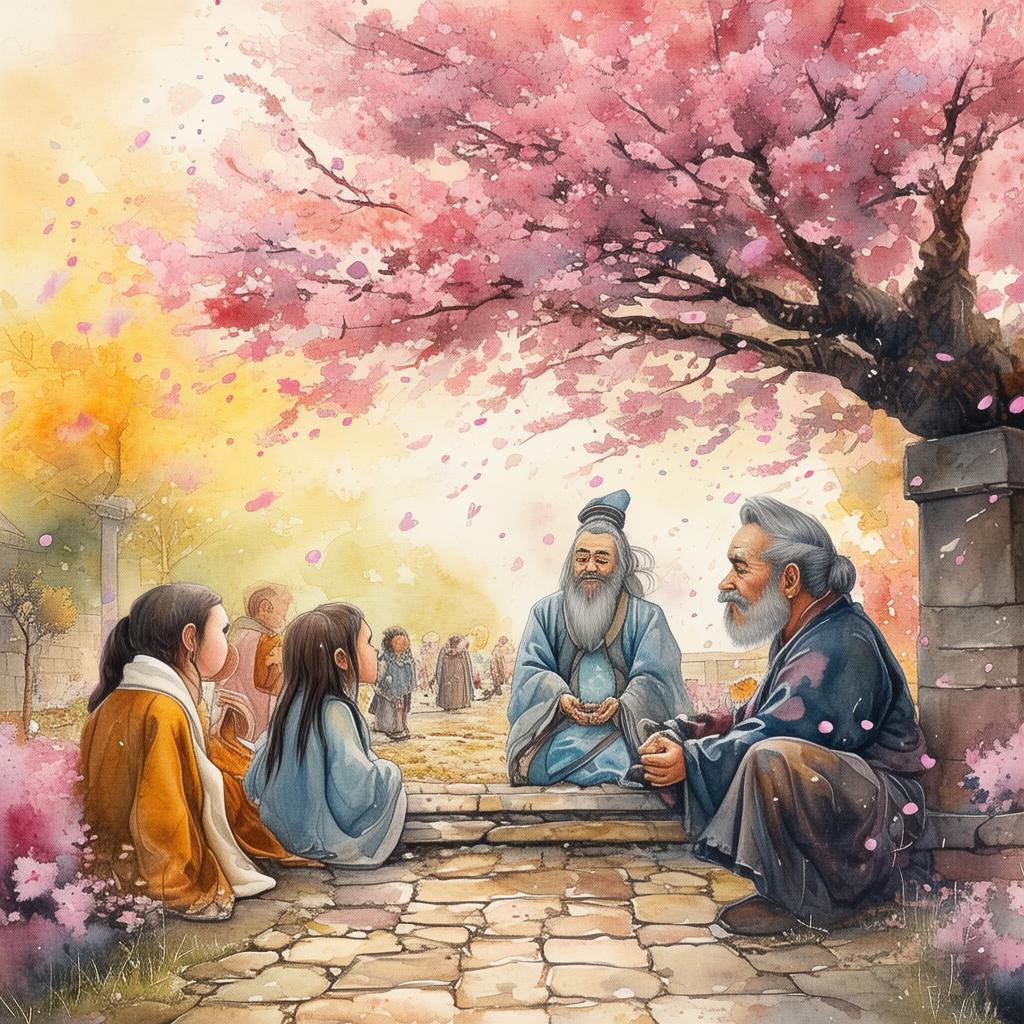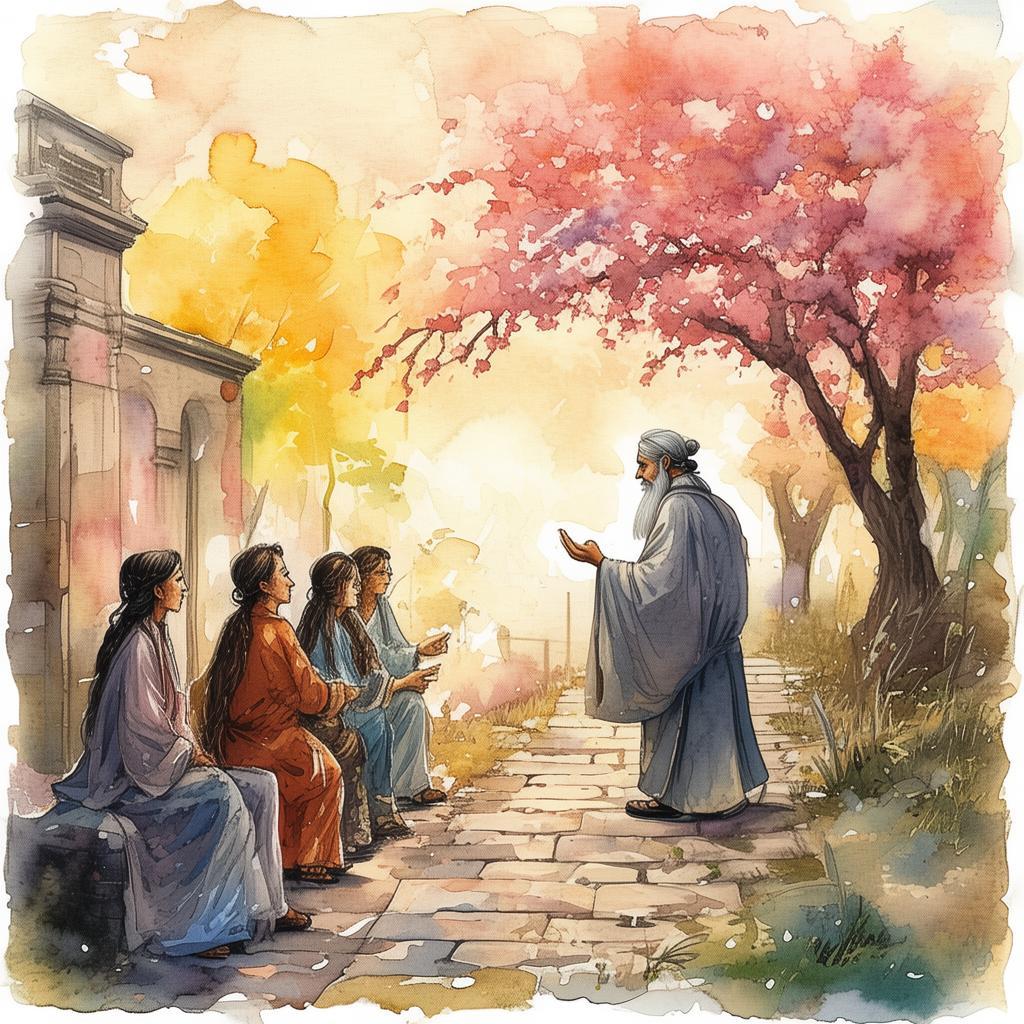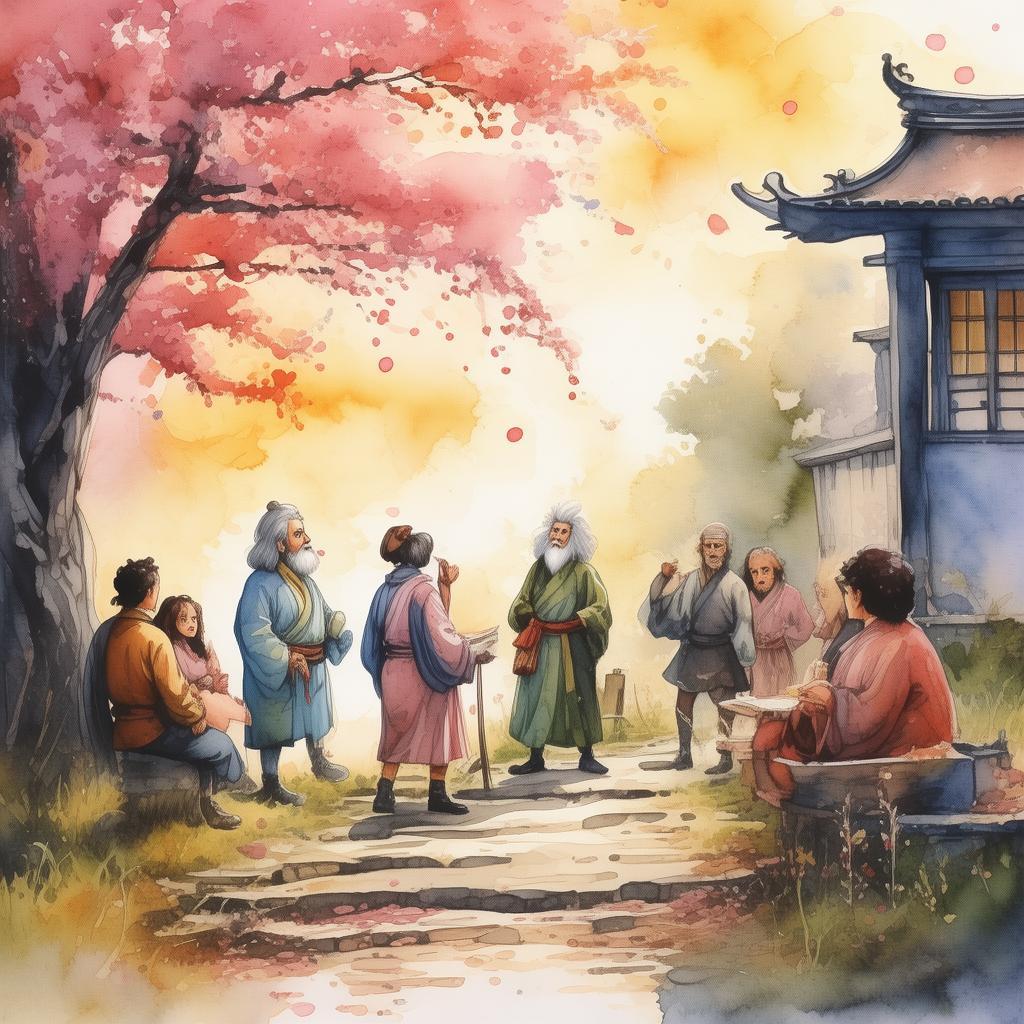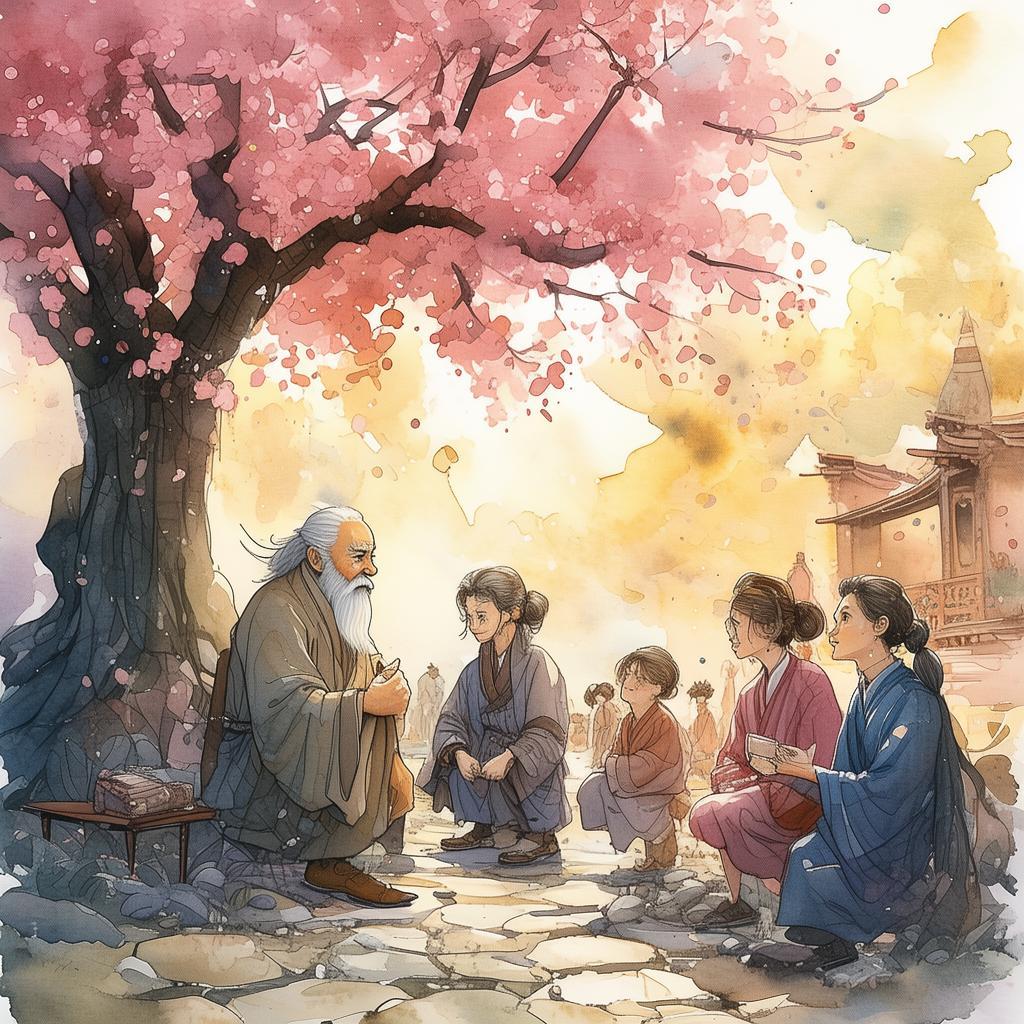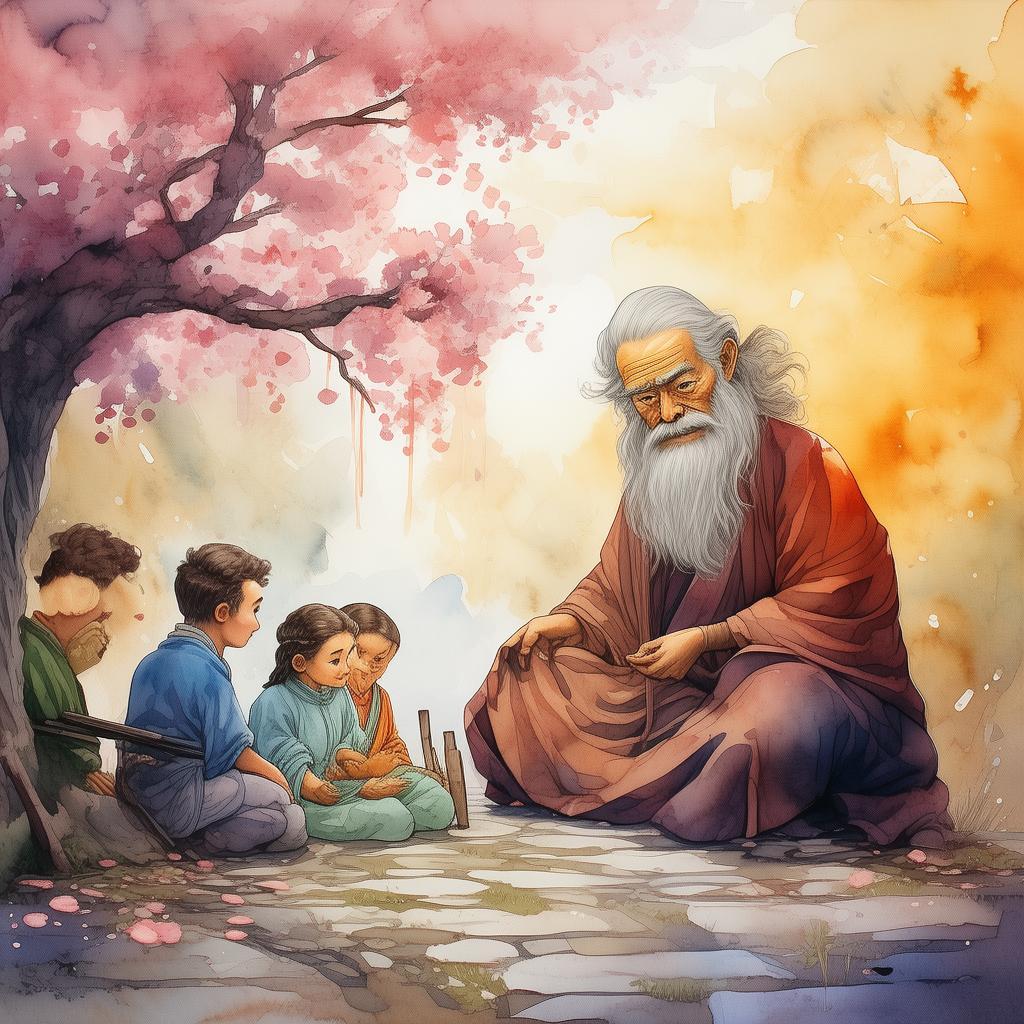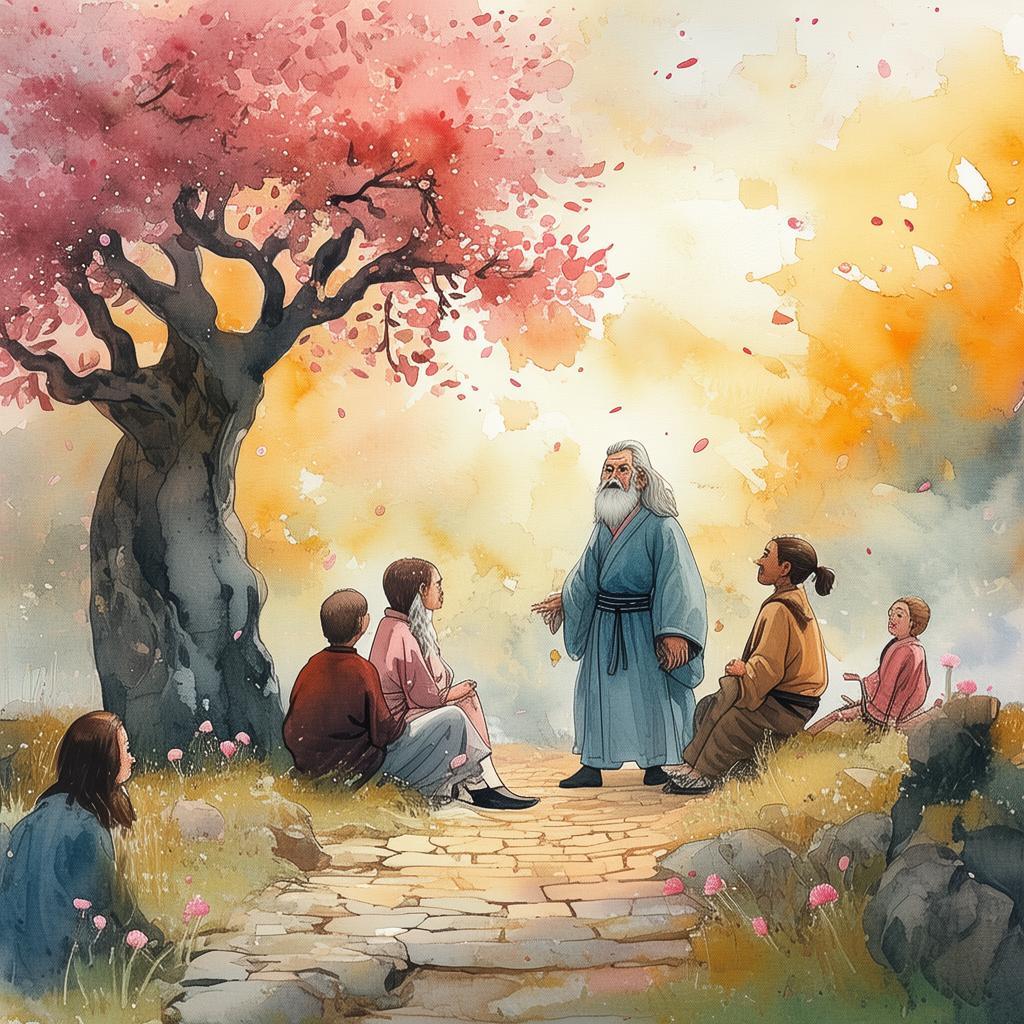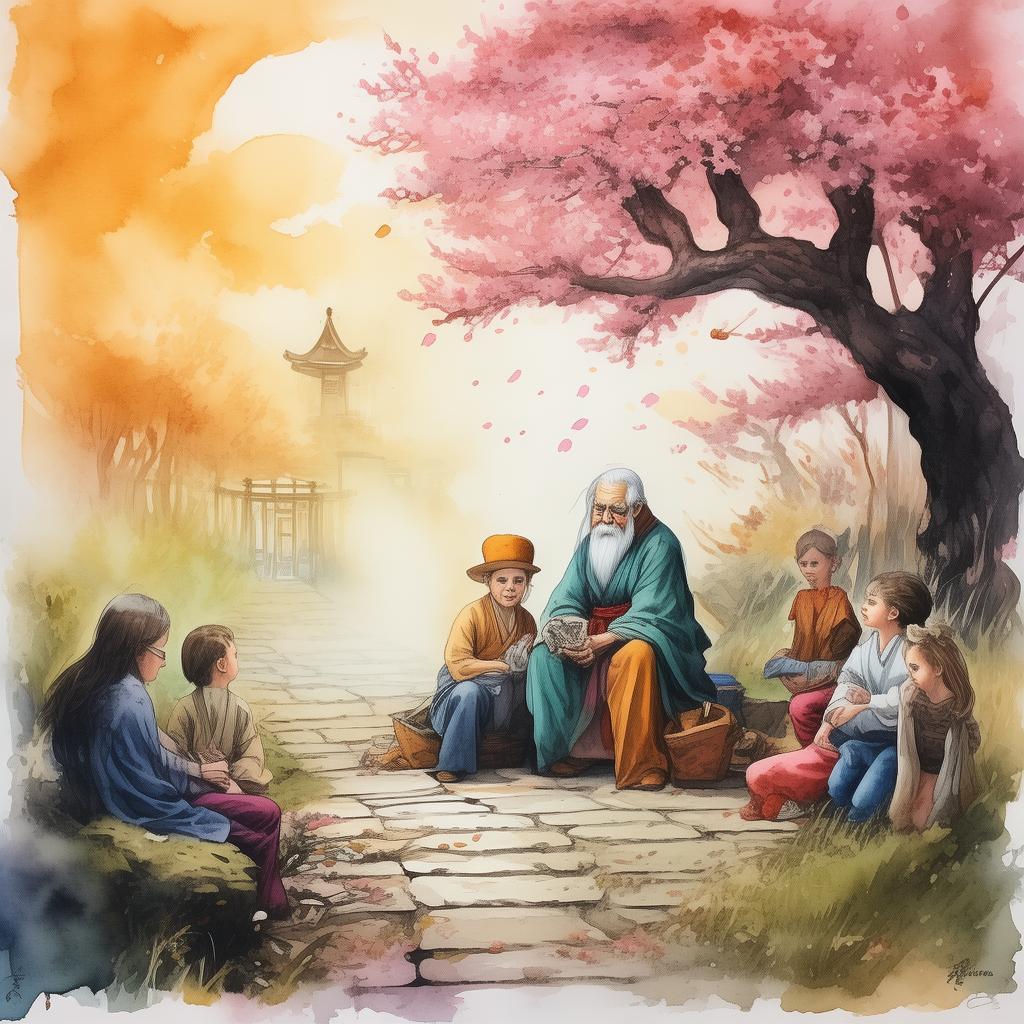The Enigma of the Vanishing Temple
The village of Linghu was shrouded in mist and whispered legends. It was said that the old temple at the edge of the village had been built over a sacred spring, where the spirits of the ancestors gathered. For generations, the villagers had avoided the temple, fearing the unseen forces that might be at play within its walls. Yet, as the years passed, whispers of a hidden cult began to surface, a group said to practice ancient rituals and communicate with the spirits of the unseen world.
In the heart of the village lived a young man named Ming, known for his honesty and wisdom. Ming had always been skeptical of the cult's practices, but the recent disappearances of villagers piqued his curiosity. One night, as the moon hung low in the sky, Ming was drawn to the old temple. The mist seemed to part around him, revealing a path that led to the temple's entrance.
Inside, Ming found a small, dimly lit chamber. The air was thick with incense and the faint scent of ancient artifacts. In the center of the room stood a pedestal, upon which rested an ancient scroll. Ming approached cautiously, his curiosity getting the better of him. As he unrolled the scroll, he discovered it was a map leading to a hidden chamber beneath the temple.
Determined to uncover the truth, Ming set out to find the hidden chamber. Along the way, he encountered members of the cult, who seemed to be aware of his presence. They were quick to question him, but Ming remained steadfast in his resolve to uncover the truth. The cult members, intrigued by Ming's honesty, began to share their beliefs with him. They spoke of a mutual honesty between the living and the unseen world, a bond that could only be formed through sacrifice and ritual.
As Ming delved deeper, he discovered that the cult was responsible for the disappearances. They were sacrificing villagers to the unseen spirits, believing that by doing so, they would secure favor and prosperity for the village. Ming was appalled by their actions, but he knew he had to stop them.
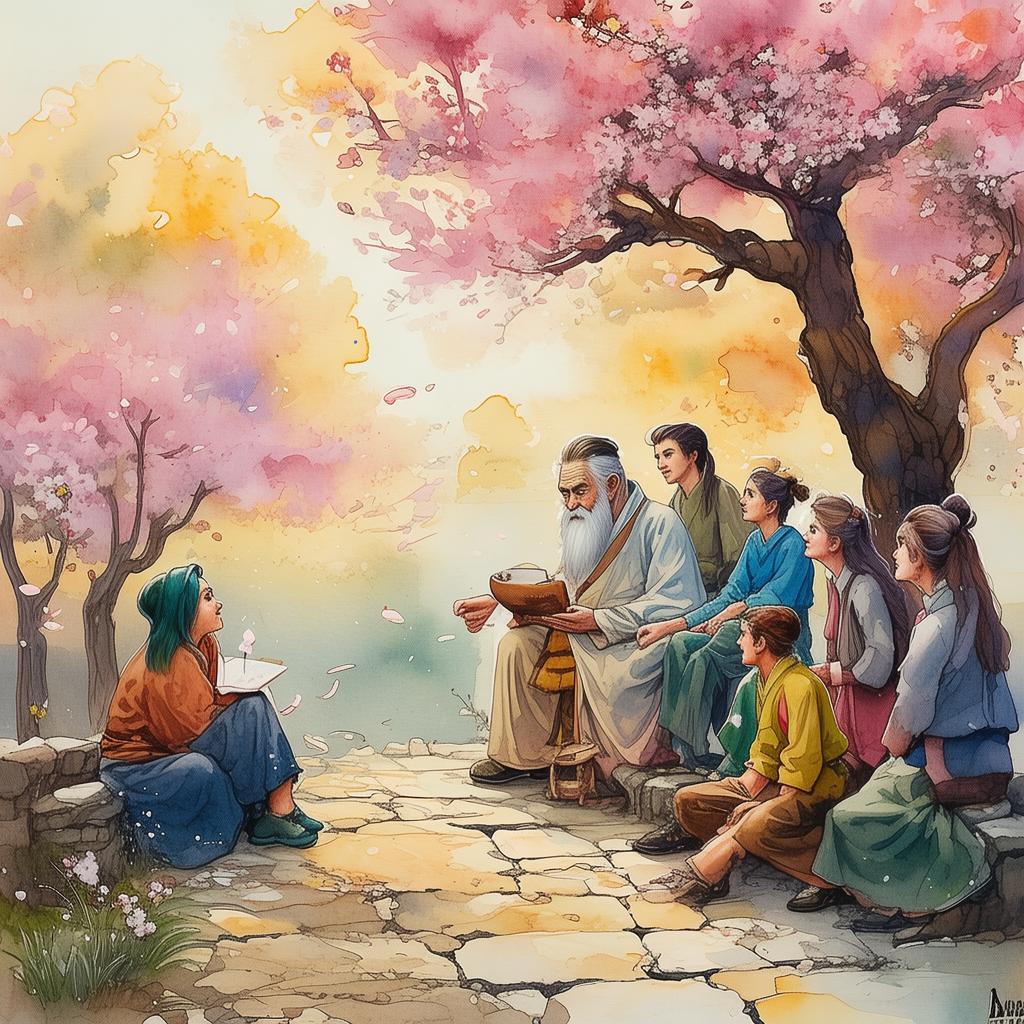
He approached the cult leader, a man named Yuan, who was known for his cunning and power. Ming revealed his knowledge of the cult's practices and their connection to the disappearances. Yuan was taken aback, but he remained calm. "Ming," he said, "you are a wise man. But you must understand that the unseen world is a delicate balance. We must keep it in check or face dire consequences."
Ming, however, was not swayed by Yuan's words. "The balance can only be restored through honesty and respect, not through fear and sacrifice," he declared. "The villagers are innocent, and their lives should not be taken for the sake of some unseen power."
Yuan's eyes narrowed as he considered Ming's words. "Very well," he said, "then you must prove your sincerity. If you can find the sacred spring and offer a true sacrifice, we will put an end to these practices."
Ming knew that he had to act quickly. He followed the map to the hidden chamber beneath the temple, where he found the sacred spring. The water was cool and clear, shimmering with an otherworldly light. He knelt by the spring and closed his eyes, reflecting on his actions and the lives he had lost.
As he reached out to touch the water, a figure appeared before him. It was an ancestor, a spirit that had once lived among the villagers. The ancestor spoke to Ming, thanking him for his bravery and revealing that the cult had been corrupted by outside forces, seeking power at the expense of the village.
With this knowledge, Ming returned to the surface, where he confronted Yuan and the cult members. He showed them the ancestor's spirit and revealed the truth about the cult's origins. The cult members were shocked, realizing the error of their ways.
Yuan, humbled by Ming's actions, agreed to end the cult's practices. The sacred spring was protected, and the temple was returned to its original purpose, a place of peace and reflection for the villagers.
The village of Linghu was forever changed by Ming's courage and honesty. The cult's secret was now known, and the balance between the living and the unseen world was restored. Ming had proven that mutual honesty was the key to a harmonious existence, both in the world of the seen and the unseen.
In the end, Ming became a symbol of integrity and wisdom, a man who had faced the unknown and emerged stronger. The villagers came to respect him not only for his actions but also for his unwavering commitment to truth and justice. The old temple, once a place of fear and mystery, now stood as a testament to the power of mutual honesty and the enduring strength of the human spirit.
✨ Original Statement ✨
All articles published on this website (including but not limited to text, images, videos, and other content) are original or authorized for reposting and are protected by relevant laws. Without the explicit written permission of this website, no individual or organization may copy, modify, repost, or use the content for commercial purposes.
If you need to quote or cooperate, please contact this site for authorization. We reserve the right to pursue legal responsibility for any unauthorized use.
Hereby declared.
